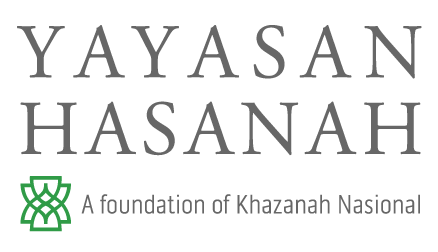In 2018, Hasanah worked alongside United Nations Development Program (UNDP)-Malaysia and Ministry of Economic Affairs (MEA) in highlighting to Ministry of Finance (MOF) on the need to balance economic growth with environmental protection based on principles of sustainability and sustainable development. As a result, YB Lim Guan Eng, Finance Minister announced RM60 million allocation by the federal government towards protection of the environment.
Environment and Energy for the Future, item 198 of Budget 2019.
198. The Government is committed to take all necessary measures to protect our environment, both as a responsibility and an endowment to our future generations. Seeing that the forest and marine reserves are under the purview of State Governments, the Federal Government will allocate RM60 million to State Governments marking efforts to protect and expand existing natural forest reserves and protected areas.
The budgetary allocation was a result of persistent advocacy by UNDP-Malaysia together with Ministry of Economic Affairs and Yayasan Hasanah to institute measures to support States to manage their land use more sustainably. This was proposed to be done through an ecological fiscal transfer mechanism from federal to state government, which would help balance the need for economic growth and protection of the natural environment. The ecological fiscal transfer would see a redistribution of federal allocation to state based on agreed principles and priorities with the purpose of making conservation indices (e.g. size/quality of protected areas) part of the fiscal allocation formula to reward investments in conservation and to incentivize the expansion of protected areas.
Hasanah recognises the value of the allocation and is committed to supporting the Government of Malaysia achieve its international pledges. Malaysia had pledged at the Rio Earth Summit in 1992 to maintain its forest and tree cover at 50% and the same pledge was reiterated during the Conference of Parties of the UNFCCC in Copenhagen in 2009. It is important to note here that achieving these goals would require structural reforms and diversification of our natural resources consumption and protection to support a vision of reducing our dependence on fossil fuel.
An avenue to achieve the stated goals would be through the sustainable management and conservation of its natural resources in Malaysia on both sides of the South China Sea. In Peninsular Malaysia, the Central Forest Spine Initiative is one of such pathway and on the island of Borneo, the Heart of Borneo Initiative. However, even with these efforts, we are slowly losing our natural forest cover and the quality of our forest have been degrading over the last 30 years. Malaysia needs to put in measures that maintain the integrity of its natural reserves while it pushes forward its agenda of becoming a high-income nation by 2030.

